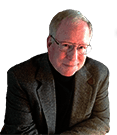Where do I get my ideas?
From almost anywhere! I might be inspired by a scene in a movie, or an article in a magazine, a dream, or a snippet of overheard conversation.
Do I read reviews of my stories?
Yes. Positive reviews are elating; negative reviews can send my mood into a tailspin. Intellectually, I know I can’t please every reader, but emotionally I need to try.
What are my favorite and least favorite things about being an author?
I enjoy the unbound freedom of creating the first draft of a story, and I enjoy the analytical precision of editing subsequent drafts. What I don’t enjoy is writing synopses, cover letters, and promotional ads.
Who is my favorite author?
Tough question! Here are a few of my favorites: Dean Koontz, Stephen King, F. Paul Wilson, Orson Scott Card, Frank Herbert, Michael Crichton, Larry Niven, Edgar Allen Poe.
Why did I become a writer?
Forgive me for providing a long answer. When I attended second grade, the students fell into three groups: a few smart kids, a lot of average kids, and my group—the three slowest learners. I struggled to understand numbers, writing, and especially reading. I recall the burn of embarrassment at having to read out loud, those long awkward pauses between each syllable as I tried desperately to remember what sound went with each squiggle on the page.
One day midway through the year, Mrs. Carpenter called on me to read. But this time as I stared at the page, magic happened. The squiggles became words and they spoke silently inside my head. Dumbstruck, enthralled, I watched the book morph into something more. The teacher called my name again, patiently prompting me to speak.
I read the first sentence. Smoothly, without hesitation, because it now made sense. It had meaning. I read the next sentence. And the next. The whole paragraph. The whole page.
I looked up and saw wonder on her face. I wanted to laugh, but started to cry.
I went from the slowest group to the fastest. Words unlocked everything. I got a library card and read as much as fast as possible. Books let me escape into worlds fun and fair. Books were never too tired for adventure, they never criticized when I was slow to grasp a new idea. Mythic heroes taught me honor and morality. The World Book Encyclopedia tutored me in facts. My grades went from D’s and F’s to A’s and B’s, and stayed there throughout high school and college.
Eventually, I tried writing. Essays. Articles. Short Stories. Poetry. The magic worked in reverse, transferring ideas into words. Writing was exhilarating, even addictive, but also frustrating. I wanted to create works so pure that words disappear, leaving only story. My idols Frank Herbert, Michael Crichton, and Dean Koontz had done it. But my every effort failed to reach their level of subtlety, realism, and power. Instead of crisp Rembrandts, my stories were fuzzy Monets. I needed help.
I began attending workshops and learned that writing is a craft that can be mastered. Study and practice sharpened words into scalpels. Loose plot threads wove into vivid tapestries. I now attend workshops every year, critique groups every month, and write something every day. Each piece calls forth the same magic that unlocked the mind of a seven-year-old boy more than half a century ago.
Magic. Wonder. That’s why I write.
Mostly.
But I also write in defiance of fear.
The most terrifying story I’ve ever read is Flowers for Algernon, by Daniel Keyes. Its message is that nothing very good lasts for long. One day by stroke, Alzheimer’s, or accident, the magic might go away. Then I’ll look at the squiggles on a page and remember once upon a time they were something more. Until that happens, I will never stop writing.
What hobbies and interests do you have outside of writing?
Like many authors, I love to read. In fiction I gravitate toward science fiction, fantasy, and horror. In non-fiction, I am fascinated by articles in Scientific American, Discover, and Skeptic magazine. Outside of reading, I enjoy playing chess, solving super-hard sudoku puzzles, and taking walks in the woods.
Are writing workshops worthwhile?
Absolutely! I try to attend at least one workshop or seminar every year. Learning the craft of writing from successful authors, agents, and editors has honed my skill and expanded my horizons.
Do I belong to any critique groups?
Yes. I find the exchange of ideas stimulating, and receiving feedback from several viewpoints makes me more aware of how readers will react to my work.
Are you a pantser or a plotter?
I don’t write from the seat of my pants. I use a very structured approach. I start with an idea, some sort of premise. What is the goal? What sort of obstacles? What are the stakes? I make notes on the setting—the when, where, and mood of the story. I identify the main characters and create detailed dossiers on each one. Next comes the plot outline, with notes on every scene. This usually ends up being about a dozen single-spaced pages. Finally, I write the first draft based on that outline and my knowledge of each character.
